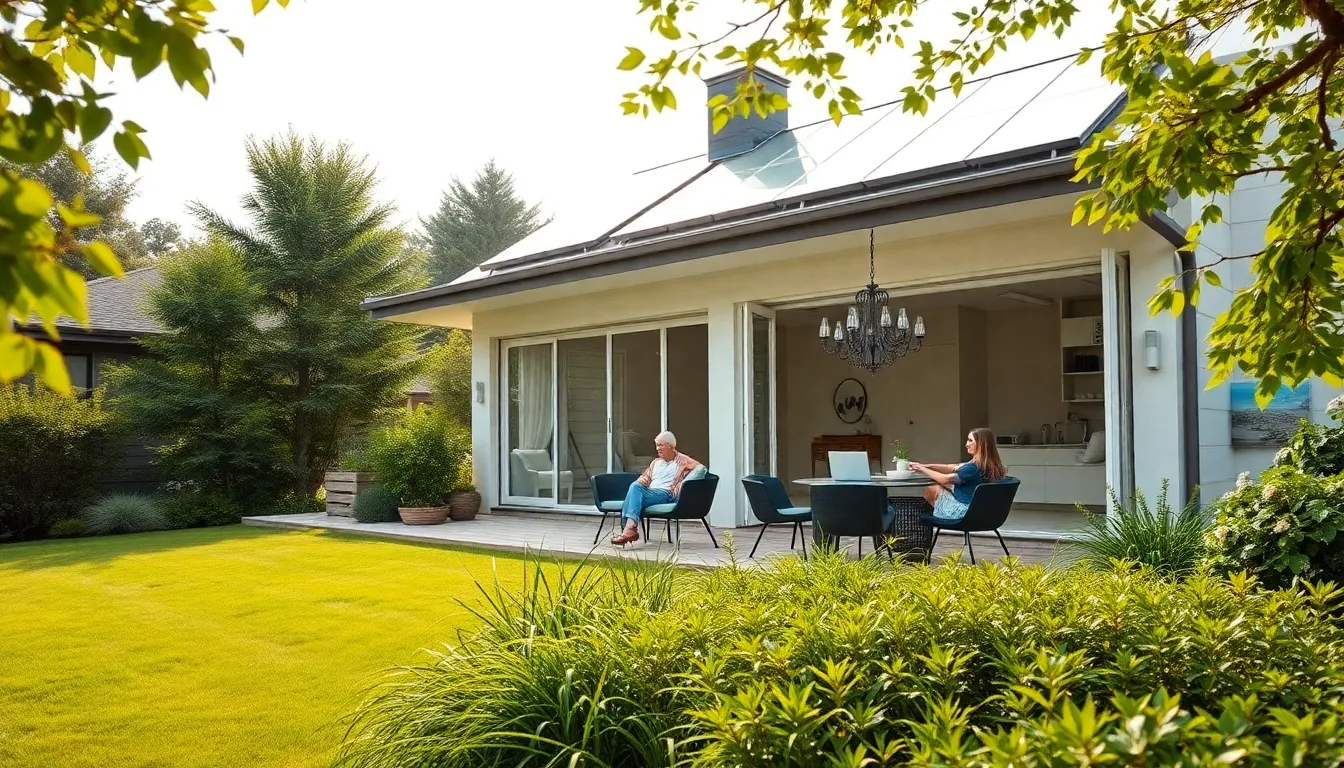The real estate world isn’t just about buying and selling homes: it’s a dynamic landscape of trends that are reshaping how people live, work, and invest. In an era where remote work is the new norm and eco-friendly living is no longer a niche market, understanding real trends in real estate is crucial. It’s like trying to navigate a house of mirrors: one wrong turn and you might just find yourself lost in the labyrinth of ever-changing buyer preferences and technological advancements. Buckle up as we explore key trends transforming the real estate market today.
Table of Contents
ToggleEmerging Market Trends

Impact of Remote Work on Housing Demand
Remote work is here to stay, and its influence on housing demand is nothing short of revolutionary. With employees no longer tied to traditional office locations, they’re seeking homes that cater to their new lifestyles. This has led to increased demand for properties in suburban and rural areas, where larger spaces and lower prices often attract buyers. People are now prioritizing home offices and outdoor spaces, reshaping the real estate market significantly.
Sustainability and Energy Efficiency in Real Estate
Sustainable living has transitioned from a trend to a necessity. Buyers and renters are increasingly favoring properties that boast energy-efficient features. From solar panels to high-efficiency windows, green building practices are catching on. Developers who incorporate sustainability into their designs are finding that these homes not only sell faster but often at higher prices. The demand for eco-friendly features is reshaping the blueprint of modern architecture.
Shifting Buyer Preferences in Urban vs. Suburban Living
Technological Advancements in Real Estate
Technology is revolutionizing the way homes are bought and sold. From online listings to data analytics, technology streamlines the entire buying process, making it more efficient and user-friendly. Prospective buyers can explore multiple listings from the comfort of their couches, allowing for well-informed choice-making without the hassle of multiple in-person viewings.
The Role of Virtual Tours and Augmented Reality
Thanks to advancements in virtual tours and augmented reality, potential buyers can immerse themselves in a property without ever stepping inside. These tools enhance the home-buying experience, allowing buyers to visualize spaces in a way that photographs simply can’t achieve. As these technologies evolve, they’re expected to become even more integral to real estate transactions.
Blockchain and Real Estate Transactions
Economic Factors Influencing Real Estate Trends
Blockchain technology holds the potential to revolutionize real estate transactions. By providing a more secure and transparent platform for buying and selling properties, blockchain could drastically cut down on fraud and paperwork. Simplifying transactions leads to quicker closings and increased buyer confidence in the market.
Interest Rates and Housing Affordability
Economic factors like interest rates significantly influence the health of the real estate market. Higher interest rates can deter buyers due to increased monthly payments, while lower rates often stimulate demand. Housing affordability remains a critical issue, pushing some buyers toward smaller homes or farther away from urban centers. Sellers and developers must remain aware of these factors to adapt their strategies effectively.
The Future of Real Estate Investments
Predictions for Market Growth and Development
Looking forward, experts predict robust growth in the real estate market, particularly in sectors catering to remote work and sustainable living. Developers focused on innovative housing solutions, including mixed-use developments that blend residential and commercial spaces, are likely to thrive. There’s also growing interest in co-living arrangements that cater to millennials and Gen Z buyers, who prioritize experiences over ownership. Understanding these shifts will be essential for investors looking to capitalize on future trends.
Innovative Financing and Investment Strategies
The financing landscape for real estate is evolving, with innovative options emerging to meet changing market demands. Crowd-funding for real estate is gaining traction, enabling smaller investors to pool resources for larger investments. Traditional financing methods are also being augmented with unique offerings like rent-to-own models and seller financing options, which provide flexibility to buyers facing challenges with conventional mortgage approval. These innovative strategies are making real estate investments more accessible for a broader range of investors.






